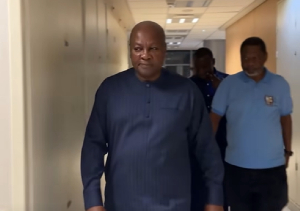Accra, Oct. 21, GNA - Parliament has been asked to examine critically the bill on the West Africa Gas Pipeline Project (WAGP) to ensure that the various legal and commercial instruments, which would be used to govern the operation of the pipeline, were in the best interest of the country.
Mr Kofi Asante, Executive Secretary of the Energy Commission, said the country's interest would be best served when Parliament understood the intricacies of the agreements such as the International Project Agreement, the Enabling Legislation and the Gas Sales Agreement and how they would impact the benefits that accrue to the country.
"These instruments require the undivided attention of Parliament, as they will govern WAGP to the exclusion of any other legislation and will have profound effect on the national economy," he said.
Mr Asante was speaking at a forum organized by the Integrated Social Development Centre (ISODEC) on the WAGP on Thursday to broaden the debate and sharpen public understanding of the issues involved in the implementation of the project.
The WAGP involves the construction of a 600-kilometre pipeline to transport natural gas from Nigeria to Togo, Benin and Ghana for their energy needs and cut the use of liquid petroleum products for power production.
Ghana, represented by the Volta River Authority (VRA), owns 16.3 per cent shares in the company.
He questioned the basis for the request to Ghana to pay upfront 96 million dollars, saying the refusal of Shell, Chevron and NNPC to publish a prospectus to set out the details of the project's financial dealings was not right.
Mr Asante, therefore, asked Parliament to get them to publish a prospectus and to seek amendments to any of the sections of the bill, which is inimical to the broader interest of the country.
Mr Emmanuel Quaye-Foli, Head of Petroleum of the Ministry of Energy, said the establishment of the pipeline would be a major catalyst for stimulating investment into the West Africa Sub-Region as well as cut down on the cost of generation of power.
He said the Parliamentary Committee on Energy was examining the bill and had dealt with most of the concerns Mr Asante had expressed. Mr Charles Darko, Director of Power Sales at Volta River Authority, said the VRA did not intend to pledge any of its assets in the implementation of the project as was being speculated.
He said the coming on stream of the project would help the VRA to meet the increasing domestic energy requirements by getting cheap gas to operate its thermal plant and save the country money in the face of rising crude oil prices.
Mr Kofi Boateng-Agyen, Senior Private Sector Specialist at the World Bank, said the Bank was supporting the Government in the implementation of the WAGP because it was in line the Bank's Regional Assistance strategy to provide sustainable development and improve economic well-being.
It is also to boost economic growth and attract investment into the Sub-Region as well as reduce negative environmental consequences.
Business News of Thursday, 21 October 2004
Source: GNA












